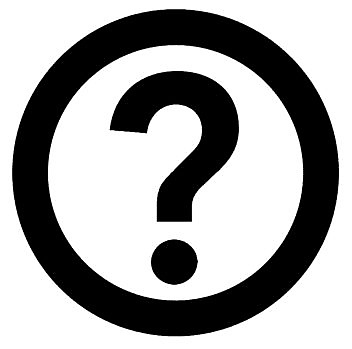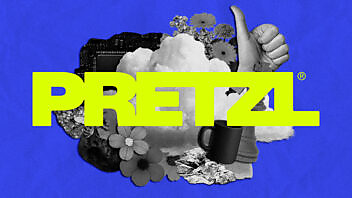There’s a thing that all great stories* have in common.
One thing that is as powerful to use as it is easy to employ.
A thing so basic and so engaging it might well be the reason any of us even wake up in the morning.
Your favourite TV show has it, your favourite movie has it, your favourite book has it, hell even your favourite song might have it.
It’s a key ingredient that makes your next page/slide/scene the most important thing in your reader/viewer/listener’s life for the next few moments.
It’s so important in fact that without it, you leave your audience no good reason to keep investing in the story you’re telling.
In no uncertain terms, it is the difference between an interesting passage and an uninteresting one.
And it’s exactly the thing that’s kept your attention seven lines into a blog post that hasn’t actually said anything yet.
It is The Question.
Every great story dangles a carrot in front of its audience. It offers them a sequence of events that unfolds in a pleasant way. Throughout that sequence of events it raises a question. And the thing that keeps people engaged enough to give a shit about what happens next is the promise of an answer.
An answer to a question so compelling they can’t do anything but try to figure it out. Will Frodo make it to the mountain? What the hell is in that suitcase in Pulp Fiction? Who the fuck is Tyler Durden? Who the fuck is Kaiser Soze?
Content marketing and The Question
As much as marketers (myself included) talk about ‘storytelling’, I don’t think we put our money close enough to where our mouths are. Don’t get me wrong – it’s almost futile comparing an eBook about data warehouse optimization to Django. But if I’m totally honest, I don’t spend nearly enough time trying to figure out what makes Tarantino such a great storyteller.
Which means I spend hardly any time learning how to make an eBook about ‘Operational Efficiency with Cloud Technology’ as compelling as one of his scripts. I get away with this in part, because I can trust that operational efficiency is mission critical to my prospects.
But if I fail to raise a compelling enough question, something so genuinely enticing or threatening to my prospect’s reality, I’ll have failed to compel her to read page two. Which means that even though I have the massive advantage of esoteric, professional relevance that Tarantino doesn’t have with his massive audience, I still won’t have turned it into a story compelling enough.
As Ira Glass expertly explains in the video below, The Question is a fundamental building block of a great story. The ingredients that go into making great stories like the ones on his show apply directly to what we do as content marketers.
The only question is, will we use them?
—
*Ok I’m torn here. I’m not sure which word I hate more ‘story’ or ‘content’.
The word ‘story’ might be one of the most overloaded and undermined words in marketing.
But at the same time, I hate how soulless, vague and empty the word ‘content’ is. Is it a unit of entertainment? What is a ‘content’?

Enjoyed this article?
Take part in the discussion








Comments
There are no comments yet for this post. Why not be the first?